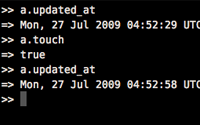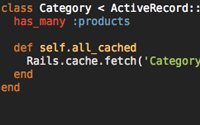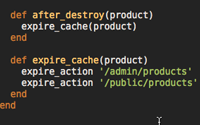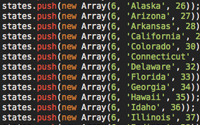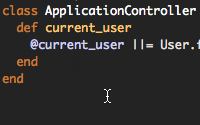Types
- Free Episodes
- Pro Episodes
- Revised Episodes
Categories
- Active Record
- Active Resource
- Active Support
- Administration
- Ajax
- APIs
- Authentication
- Authorization
- Background Jobs
- Caching
- Code Walkthrough
- Controllers
- Debugging
- Deployment
- eCommerce
- Forms
- Mailing
- Models
- Performance
- Plugins
- Production
- Rack
- Rails 2.0
- Rails 2.1
- Rails 2.2
- Rails 2.3
- Rails 3.0
- Rails 3.1
- Rails 3.2
- Rails 4.0
- Refactoring
- Routing
- Search
- Security
- Testing
- Tools
- Views
Cache Digests
The cache_digests gem (also included in Rails 4) will automatically add a digest to the fragment cache key based on the template. If a template changes the cache will auto-expire. But watch out for the gotchas!
(7 minutes)
Touch and Cache
Rails 2.3.3 brings us a new feature called "touch". See how to use this to auto-expire associated caches in this episode.
(6 minutes)
Dynamic Page Caching
Use JavaScript to allow dynamic content in a page cache. In this episode I show you how to insert the user-specific content into a page through JavaScript.
(11 minutes)
Caching in Rails 2.1
Rails 2.1 brings some new caching features which makes it very easy to cache any values including models. See how in this episode.
(8 minutes)
Action Caching
Action caching behaves much like page caching except it processes the controller filters. You can also make it conditional as seen in this episode.
(7 minutes)
Fragment Caching
Sometimes you only want to cache a section of a page instead of the entire page. Fragment caching is the answer as shown in this episode.
(6 minutes)
Page Caching
Page caching is an efficient way to cache stateless content. In this episode I will show you how to cache the dynamic javascript we created last week.
(6 minutes)
Caching with Instance Variables
Learn a quick way to improve performance. Just store the end result of an expensive command in an instance variable!
(2 minutes)


